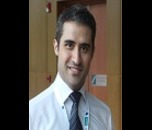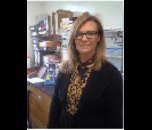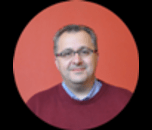Advancements in Analytical Techniques
Advancements in analytical techniques have transformed numerous fields by significantly improving accuracy, speed, and sensitivity. Innovations such as mass spectrometry, high-performance liquid chromatography (HPLC), and nuclear magnetic resonance (NMR) spectroscopy now allow for highly precise molecular analysis. Moreover, the integration of data analytics and machine learning has enhanced the interpretation of complex data, enabling more informed and efficient decision-making across research and industrial applications. These state-of-the-art methods play a vital role in driving progress in pharmaceuticals, environmental science, and materials engineering.
Analytical Chemistry and Methodology
Analytical chemistry is the branch of science focused on obtaining, processing, and interpreting information about the composition and structure of matter. It involves the use of various instruments and techniques to separate, identify, and quantify substances. Separation methods are employed to isolate the analytes, and conventional techniques are generally categorized into qualitative and quantitative assays. The identity of a specimen can be inferred by observing the preparation reaction and its components. Specific reagents are selected to react with particular substances or classes of mixtures, forming distinct reactive elements.
Quantitative Testing: Traditional quantitative testing methods are classified into gravimetric and volumetric techniques. Both approaches rely on extensive chemical reactions between the analyte and reagents to determine the amount of substance present.
-
Applied Analytical Chemistry
-
Environmental Analytical Chemistry
-
Process Analytical Chemistry
-
Instrumental Methods
Bioanalytical Methodology
Advances in bioanalytical techniques have created a dynamic landscape, offering numerous exciting opportunities to drive future progress. Current objectives focus on studying the introduction of toxic energy into pharmacokinetics, bioequivalence, and related pharmacokinetics/pharmacodynamics studies. Various bioanalytical frameworks are applied in biological investigations, with a particular emphasis on hyphenated bioscience strategies and tools for evaluating drug biostudies.
-
Hyphenation Techniques
-
Chromatographic Strategies
-
Biodiagnostic Procedures for Ligands
Polymer Science and Material Science
Made from materials crucial for future progress, our experts specialize in biodegradable plastics, solar cells, light-emitting diodes, control device terminals, arresting devices, and practical tailoring. They investigate the scaffolding, layers, and potential hydrogen storage within finished devices. Explore innovative inorganic and polymeric materials with diverse applications.
-
Dynamic Mechanical Investigation
-
Inverse Electron Echo Spectroscopy
-
Fluorescence
-
Differential Filter Calorimetry
-
Materials Design Chemistry
Electrophoresis
Electrophoresis refers to the movement of charged particles under the influence of an electric field. The rate of particle movement is influenced by factors such as the strength of the electric field, the magnitude of the net charge, the state of the particles, and the ionic composition, consistency, and temperature of the medium in which the molecules travel. As a diagnostic tool, electrophoresis is fast, efficient, and highly sensitive, making it ideal for analyzing the characteristics of a single type of charged particle and using it as a framework for further analysis.
Types of Electrophoresis:
-
Routine Electrophoresis
-
High-Resolution Electrophoresis
-
Polyacrylamide Gel Electrophoresis
-
Capillary Electrophoresis
-
Affinity Electrophoresis
-
Isoelectric Focusing
-
Immunochemical Electrophoresis
-
Two-Dimensional Electrophoresis
Advancements in Mass Spectrometry
Advancements in mass spectrometry (MS) have greatly improved its sensitivity, accuracy, and speed, enabling precise identification and quantification of molecules. High-resolution MS and innovative ionization techniques have expanded its applications in proteomics, metabolomics, and drug discovery. These developments are revolutionizing analytical chemistry, providing deeper insights into biological processes and accelerating scientific discoveries.
Novel Approaches to analytical and Bioanalytical method
Novel approaches to analytical and bioanalytical methods involve innovative techniques and technologies to enhance the accuracy, efficiency, and sensitivity of detecting and quantifying substances in various samples. These advancements aim to improve sample preparation, data analysis, and instrumentation, leading to faster and more reliable results. Cutting-edge methods include advanced chromatography, mass spectrometry, and integrated bioinformatics tools, revolutionizing the fields of pharmaceuticals, environmental testing, and clinical diagnostics.
Clinical and Diagnostic Bioanalysis
Clinical and Diagnostic Bioanalysis involves techniques for analyzing biological samples to diagnose and monitor diseases. It focuses on developing and applying methods for detecting biomarkers, assessing drug levels, and evaluating patient responses to treatments. This field integrates analytical chemistry with clinical research to improve diagnostics, enhance therapeutic strategies, and support personalized medicine. The goal is to provide accurate, timely, and reliable data for effective patient care and treatment outcomes.
Chromatography
Chromatography is a laboratory method for separating mixtures. The mixture is dissolved in a liquid called a moving stage and helps it pass through a structure containing another material called a fixed stage. Different components of the mixture move at different speeds, thus separating them. Separation relies on differential refinement between generic and fixed stages. The modest contrast of compound plot coefficients leads to differential maintenance in the stationary phase and in this sense affects the separation. Chromatography is either preparative or analytical. The reason for preparative chromatography is to split a part of the combination for later use, and then it's far a sort of filtration. Exposure chromatography is routinely performed on small amounts of substances and is used to establish the proximity of analytes in a mixture or to estimate general abundance. The two are not completely independent of each other.
-
Gas Chromatography
-
Thin Layer Chromatography
-
Paper Chromatography
-
Liquid Chromatography
-
Advances in Chromatography and HPLC Technology
New Instrumentation and Equipment
Analytical devices play a crucial role across various fields due to their versatility and compatibility with sample analysis. These instruments are widely used both in the field and laboratory settings. Their applications span a range of areas including analytical chemistry, clinical analysis, environmental testing, food and beverage analysis, forensic analysis, life science research (such as metabolomics, genomics, and proteomics), material characterization, petrochemical testing, pharmaceutical analysis, and more. Analytical instruments encompass a broad spectrum of technologies, such as spectroscopy, mass spectrometry, electrochemical analysis, thermal analysis, separation techniques, microscopy, and hybrid methods like GC-MS and HPLC-MS. Examples of these instruments include mass spectrometers, chromatographs (e.g., GC, HPLC), spectrometers (e.g., AAS, X-ray, fluorescence), particle size analyzers, rheometers, elemental analyzers (e.g., salt analyzers, CHN analyzers), and thermal analyzers.
Advances in Separation Techniques
Separation processes are unit activities required in most modern pharmaceutical technologies, substances, and various processing plants. Forms of separation include standard and common methods such as purification, retention, and adsorption. These procedures are very normal and important progress is made and checked around them. On the other hand, new separation processes such as membrane-based processes, supercritical fluid extraction, and chromatographic separation are gaining importance in today's systems as new forms of separation.
-
Hyphenated Separation Methods
-
Chromatography as Separation Method
-
Spectroscopy as Separation Method
Environmental Analytical Chemistry
Environmental Analytical Chemistry focuses on specializing in advanced modern analytical methods to address a variety of issues in the environmental and pharmaceutical industries. This journal covers, for example, analytical instrument techniques for remote estimation, securing atmospheric trace constituents in anthropogenic and characteristic roots, localization and characterization of natural and inorganic toxins in air and water, soil measurements, and environmental studies. covers zones such as essential metals and radionuclide verification. Diverse methods of chemometrics in ecological research. Cases of problems addressed by climate science integrate destructive rains, ozone depletion, photochemical smoke plumes, greenhouse gases, and global warming. Environmental chemistry includes several points such as astrophysics, environmental sciences, ecological demonstrations, geochemistry, ocean chemistry, and pollution remediation.
Regulatory Issues and Biosafety Challenges in Bio analysis
Liquid chromatography-mass spectrometry (LC-MS) is a powerful analytical technique that combines the separation capabilities of liquid chromatography with the precise detection power of mass spectrometry. LC-MS systems are used for rapid, mass-controlled identification and filtration of complex constituents and novel atomic substances, making them essential for industries such as nutrition, pharmaceuticals, pesticides, and more. LC-MS plays a key role in drug development, supporting various stages like detecting environmental exposures, conducting quantitative bioanalysis, and ensuring regulatory compliance. The FDA uses LC-MS for quality testing of prescription medications.
In the context of Traditional Chinese Medicine (TCM), a therapeutic practice with roots in over 2,200 years of Chinese history, LC-MS contributes to enhancing the understanding and application of herbal treatments. TCM emphasizes strengthening the body's defenses and improving overall health, rather than just treating diseases, by utilizing herbs for health benefits.
Innovation in Food Analysis & Testing
Innovation in food analysis and testing refers to the development of new and advanced methods and techniques for detecting and analyzing food contamination, quality parameters, and food ingredients. These methods include spectroscopy, chromatography, mass spectrometry, and DNA-based techniques. Innovations in food analysis and testing are essential to ensuring food safety, quality, and authenticity. It also enables the detection of food fraud and the identification of new food sources and ingredients. In recent years, there has been a growing demand for rapid and non-destructive methods of food analysis, leading to the development of small, portable devices that can be used in the field and in the field.
Pharmaceutical Analytics
Pharmaceutical analysis is a strategy or set of methods for identifying or possibly recognizing, substances or recipes that are part of pharmaceutical schedules or mixtures. Pharmacy participates in a wide range of consistent research focused on clinical research, drug disclosure, drug composition, drug delivery, drug activity, drug research, pharmaceutical company funding issues, and administrative issues. Pharmacy is further divided into several academic disciplines such as Pharmacology, Pharmacodynamics, Pharmacokinetics, Pharmacotoxicology, Pharmacogenomics, Pharmacy, Pharmaceutical Sciences, and Pharmacy.
Description and New Methods to Address Bioanalytical Strategies
-
Bioanalytical Systems
-
Chromatography and Systems
-
Spectroscopic Systems
-
Nuclear Gravity Reverberations
-
Mass Spectrometry
-
Regulatory Issues and Biosafety Challenges in Bioanalytical
NMR and Analysis of small Organic Molecules
Nuclear Magnetic Resonance (NMR) spectroscopy is a powerful analytical technique used to determine the structure of small organic molecules. By measuring the magnetic properties of atomic nuclei, NMR provides detailed information about molecular structure, dynamics, and environment. This method is essential in organic chemistry for elucidating molecular frameworks and verifying compound purity.
Biopolymers and Biomaterials
In general, biopolymers have received a great deal of attention due to their diverse applications that can address increasing environmental concerns and vitality requirements. The improvement of various biomaterials has also made remarkable progress in the field of repair, and many biopolymers are used in the production of biomaterials. Combining biopolymers and biomaterials presents extraordinary possibilities for new materials, applications, and jobs.
Various studies on biopolymers and biomaterials are presented, along with their results, explanations, and conclusions drawn from the studies. This includes biopolymer combinations, their representations, and potential applications.
Clinical Diagnostics Equipment and Kits
In 2025, clinical diagnostics equipment and kits will see significant advancements through innovations in precision medicine, AI, and digital technologies. Point-of-care testing (POCT) will become more prevalent, enabling quicker, on-site results, which is especially valuable in emergency and remote situations. Devices will integrate mobile health solutions and AI to enhance diagnostic accuracy. Next-generation sequencing (NGS) and liquid biopsy will transform oncology by allowing for earlier, less invasive cancer detection. AI-powered diagnostics, such as digital pathology, will improve the precision of disease detection. The expansion of diagnostic tools will also extend into neurology and autoimmune diseases, allowing for more personalized treatment options.
Proteomics and its applications
Proteomics is the large-scale study of proteins in biological systems. This involves identifying, characterizing, and quantifying all proteins within a given sample and analyzing their functions, interactions, and modifications. Proteomics has many applications in biomedical research, including the discovery of new biomarkers for disease diagnosis and prognosis, the development of new drugs and therapeutics, and the identification of molecular targets for drug development. It is also used in fields such as agriculture, environmental science, and biotechnology to understand protein expression and function in various systems.
-
Mass Spectrometry Proteomics
-
Integrating Transcriptomics and Proteomics
-
Protein Interactions in Biology
-
Proteomics in Biomedical Applications
-
Proteomics in Plant and Animal
Analytical Challenges in Personalized Medicine
Personalized medicine tailors treatments based on individual genetic profiles, but it faces analytical hurdles. Key challenges include managing vast genomic data, integrating multi-omics information, and ensuring data accuracy. Algorithms must adapt to genetic variability and predict patient responses with precision. Additionally, interpreting complex interactions among genes, environmental factors, and lifestyle requires advanced bioinformatics tools and robust statistical methods to ensure effective, individualized healthcare solutions.
Analytical Chemistry in the Energy Sector
Analytical chemistry plays a crucial role in the energy sector by ensuring the quality and efficiency of energy sources. It involves the precise measurement and analysis of substances in fuels, lubricants, and waste products. Techniques such as spectroscopy, chromatography, and mass spectrometry are employed to detect impurities, optimize energy production processes, and monitor environmental impact. This ensures compliance with regulations and enhances the performance and sustainability of energy systems.
Applications of mass spectrometry
Mass spectrometry is widely used for identifying and quantifying molecules based on their mass-to-charge ratio. It plays a critical role in diverse fields such as pharmaceuticals for drug development, environmental science for pollutant detection, and clinical diagnostics for disease biomarker identification. Additionally, it aids in proteomics and genomics for understanding protein and DNA structures, enhancing research and applications across various scientific disciplines.
Biochemistry
Chromatography is a method used in laboratories to separate mixtures of components. A solution called the mobile phase dissolves the mixture and transports it through the structure containing the stationary phase. The combination is split because different components move at different speeds in different media.
-
Disease prevention
-
Food containment
-
Plant secondary metabolites
-
Nutritional deficiencies
Microscopy
Microscopy is the scientific technique of using a microscope to magnify and visualize objects or materials too small to see with the naked eye. This allows researchers to study in detail the structure, composition, and behavior of various materials such as biological samples, minerals, and electronic components. There are various types of microscopes, such as optical microscopes, electron microscopes, and scanning probe microscopes, each with its own advantages and disadvantages. Microscopes are essential tools in many fields such as biology, materials science, nanotechnology, and medicine.
Nanomaterials and Nanotechnology in Analysis
Nanomaterials and nanotechnology revolutionize analytical techniques, enabling unprecedented sensitivity and specificity. Nanoscale materials, such as quantum dots and nanoparticles, enhance imaging and diagnostic methods, allowing for early disease detection and precise molecular characterization. These innovations facilitate the development of advanced sensors and lab-on-a-chip devices, providing rapid, accurate analyses in environmental monitoring, medical diagnostics, and chemical detection, thereby transforming traditional approaches and driving forward scientific progress.








